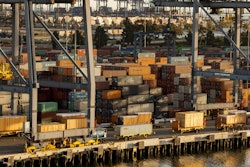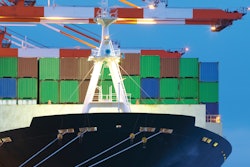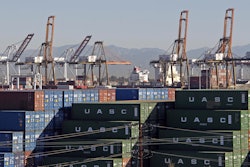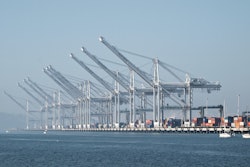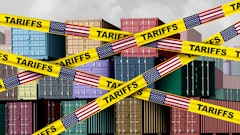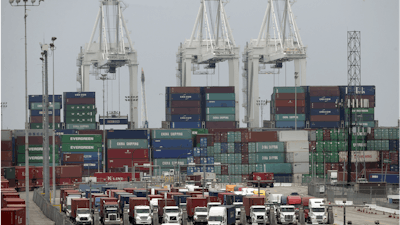
Federal officials are requiring the world’s largest shipping companies to provide detailed documentation on how they are implementing service agreements on the U.S. West Coast amid concerns over a collaboration the companies formed to address port congestion, according to The Wall Street Journal.
The U.S. Federal Maritime Commission (FMC) issued the order to 19 international ocean carriers on Friday. The regulator was expected to post the notice publicly on the FMC ’s website Monday.
The shipping companies are parties to the Pacific Ports Operational Improvements Agreement, which went into effect without opposition from the FMC on April 17. The agreement authorized the ocean carriers and West Coast marine terminal operators to work together on “policies, actions and procedures” to improve efficiency at the ports, which have experienced severe congestion over the past year.
FMC commissioners expressed support for the agreement at the time, but they said it would be closely monitored to identify any anticompetitive activity.
Under U.S. law, ocean carrier agreements involving the transportation of U.S. foreign commerce must be filed with the FMC. The commission reviews the agreements and monitors how they are implemented.
Editors Insight: Food and beverage shippers should know that the FMC pays attention to ocean carrier activity and responds to shippers’ concerns. It’s too soon to know what the FMC will determine from its investigation, but shippers should realize the importance of paying attention to carriers’ actions and maintaining records.
The Agriculture Transportation Coalition (AgTC) has pressed the FMC to investigate shippers’ claims that some carriers took advantage of the West Coast port congestion by saddling shippers with excessive charges for stymied cargoes. (See http://www.foodlogistics.com/article/12078852/port-congestion-woes-shippers-seek-relief-from-excessive-carrier-charges) When a strike halted port activity, shippers could not return containers to carriers in the allotted time. Terminals closed and trucks could not get to the terminals to deliver containers.
To be fair, some carriers have waived the charges, but others have not, according to AgTC.
Food and beverage shippers have been calling for the FMC to take a more proactive role in addressing port traffic problems. The AgTC has encouraged federal lawmakers to exert pressure on FMC, and some lawmakers have heeded the call.
It remains to be seen to what extent carriers bear responsibility for the problems shippers encountered at West Coast ports. The FMC has clearly sent the right message; they are monitoring carrier activity and asking for information. 7-14-15 By Elliot Maras




